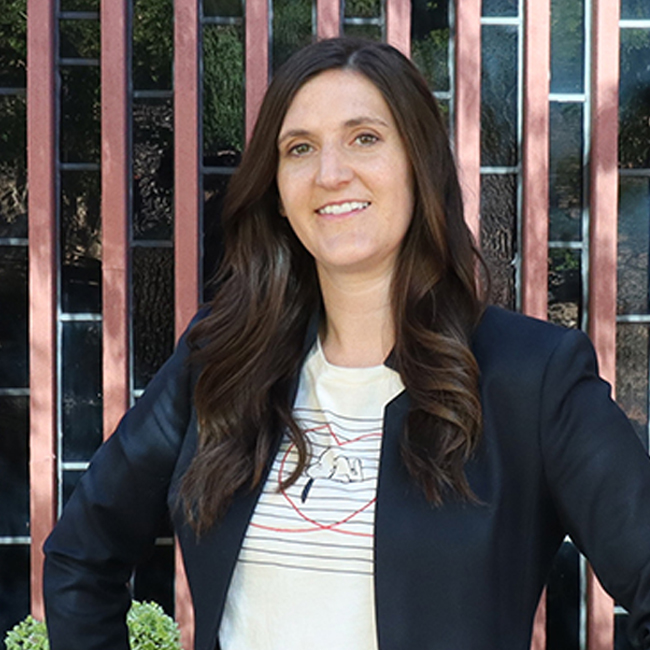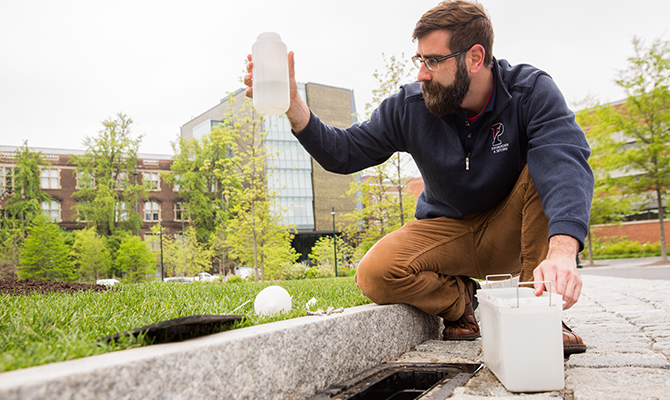The central purpose of this program is to bring together highly qualified individuals from France, China, and the United States with a variety of master’s degrees in a unique and rigorous program that prepares students to manage complex international environmental challenges.
Advanced students in the MES program can apply for admission to this multi- master’s degree program in International Environmental Management. Upon completion of their studies, students receive a Mastère Spécialisé degree in Environmental Management from Mines Paris Tech (formerly Ecole des Mines de Paris) in France and a Master of Engineering degree from Tsinghua University in China, in addition to the Master of Environmental Studies degree from the University of Pennsylvania.
Watch the video below as John Keene and Yvette Bordeaux from Penn, along with Cathy Descamps-Large and Daniel Florentin from Mines ParisTech, give an overview of the Multi-Master’s Degree program.
If you’re having trouble seeing this video, you can watch it on YouTube.
About the program
The Multi-Master’s Degree in International Environmental Management is designed to be completed in 2.5 years including one summer semester (six semesters total). Over the 2.5 years, students are in residence at the University of Pennsylvania for the first two semesters and complete a minimum of 8 course units. The student then travels to Mines Paris Tech for one semester (September to December) where they complete all requirements for a Post-Master’s Degree in International Environmental Management (IEM). The student then travels to Beijing, China and is in residence at the Franco-Chinese Center of Environment and Energy at Tsinghua University for one semester (January-April), where they complete all requirements for either a master’s degree or a certificate in environmental engineering (depending on student’s academic background). Then, the student participates in a four- to six-month internship, completed by December of that year. The student writes a report on the results of this internship and this report serves as the capstone for the MES program and completes the requirements for the Mines Paris Tech and Tsinghua degrees. Two course units of credit will be transferred from Mines Paris Tech to the MES program, and 2 course units of credit will be transferred from Tsinghua University to the MES program completing the 12 course unit requirement for the MES program.
Students who prefer a shorter time commitment may choose to complete the dual degree MES/IEM. For this option, students complete 10 course units in the MES before travelling to Mines Paris Tech for one semester. The students complete a 4-6-month internship and write a report on the results of this internship. This report serves as the capstone for the MES program and completes the requirements for the Mines Paris Tech IEM degree.
Course sequence
Note: Students may take courses in the summer between Penn and Mines Paris
|
Sequence for three degrees (MES/IEM/MEE) |
|||
|
Semester |
Program |
Recommended Courses |
MES |
|---|---|---|---|
|
1 (Fall) |
MES |
|
4 course units |
|
2 (Spring) |
MES |
|
4 course units |
|
3 (Fall) |
Mines Paris |
Full course load |
2 course units |
|
4 (Spring) |
Tsinghua |
Full course load |
2 course units |
|
5 (Summer) |
|
Internship (4-6 months) |
0 course units |
|
6 (Fall) |
MES |
ENVS 990 Master’s Thesis |
0 course units |
|
|
|
Total |
12 Course units |
|
Sequence for two degrees (MES/IEM) |
|||
|
Semester |
Program |
Recommended Courses |
MES |
|---|---|---|---|
|
1 (Fall) |
MES |
|
4 course units |
|
2 (Spring) |
MES |
|
4 course units |
|
3 (Summer) |
MES |
2 Concentrations courses |
2 course units |
|
4 (Fall) |
Mines Paris |
Full course load |
2 course units |
|
5 (Summer) |
|
Internship (4-6 months) |
0 course units |
|
6 (MES) |
MES |
ENVS 990 |
0 course units |
|
|
|
Total |
12 course units |
Capstone requirement
All three schools require a thesis/capstone, but the topic (the student’s internship) is the same for all three programs. There are slightly different thesis formatting requirements for each program and Tsinghua requires a thesis defense. Sample capstone topics include:
- The Global Development of a CCS-Based Service and Technology Market with a Focus on the US, France, and China
- Environmental Externalities of the Nuclear Process Cycle: Uranium LCA and Strategic Implications
- Sustainable Development in Practice: Rural Planning for Ecotourism Development in Southern China
- Improving Supplier Engagement as a Means to Reduce Greenhouse Gas Emissions of a Global Company
Career opportunities
Alumni of this program are poised to work in environmental management at the international corporate level. Alumni of the program have worked for US AID, Jordan, Walgreens, CSR Manager, and Google.
Alumni profile

Kristen King (MES/MEng/MS ’17)
See how Kristen King, a civil engineer by training, drew on every element of her interdisciplinary education in China, France, and the United States.
How to apply
Students participating in this program must apply to and be accepted to the MES program first. Once accepted the student may apply to Mines Paris Tech and Tsinghua in their second semester at Penn.
See details about the MES application >
Contact information
Siobhan Whadcoat, PhD, Director, Professional Masters Programs in Earth and Environmental Science
lps@sas.upenn.edu
Visit the IEM website to get more details about the dual degree.





